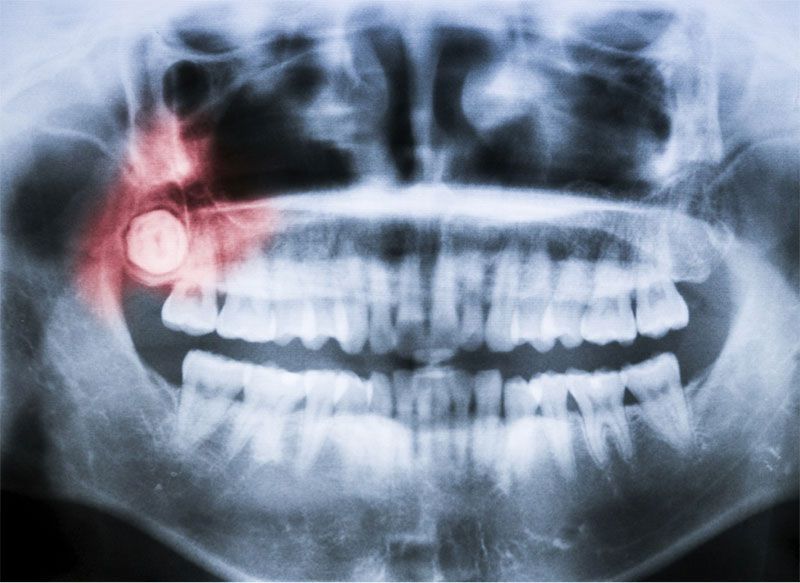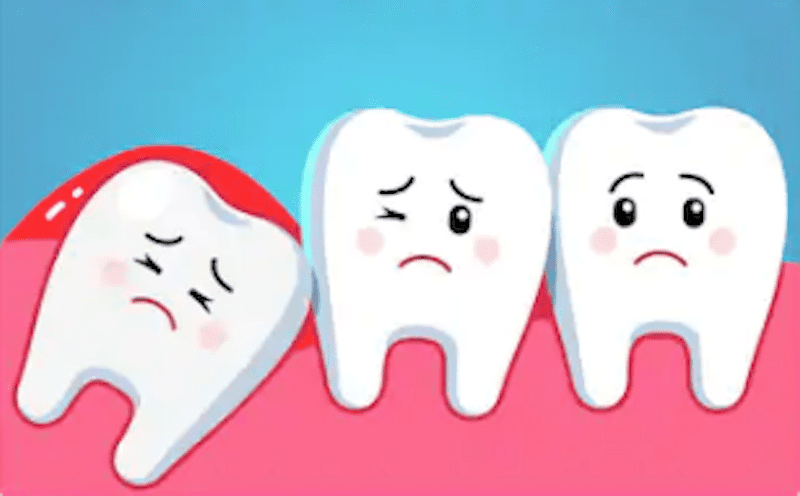
Should you have wisdom teeth removed?
You may remember it from your childhood—swelling, radiating pain, even bleeding, and the fateful trip to the dentist when you were told your wisdom teeth had to come out. While the removal of wisdom teeth has become somewhat of an American rite of passage, over the past few years, people have begun questioning the wisdom of having their wisdom teeth removed.
We consulted our experts to help answer the questions once and for all: Should you have your wisdom teeth removed? (Psst… the answer is yes.)

Top 4 reasons to have your wisdom teeth removed
The decision of whether or not to have your wisdom teeth removed is dependent on whether they are already causing problems or are likely to cause problems in the future. Here are some reasons why your dentist may recommend removal.
Impacted wisdom teeth
Impaction results when there is not enough room on the jawbone for wisdom teeth to grow. This causes the teeth to remain partially trapped underneath the gum tissue or jawbone, leading to chronically painful or inflamed gums. The roots can grow in strange directions, leading to a variety of problems with the oral cavity and the nerves in your lower jaw.
Since wisdom teeth can be hard to brush or floss, bacteria and plaque often accumulate over time, causing cavities. These cavities may spread, resulting in severe damage to the tooth and the adjacent supportive structures.
Cysts
At times, impacted teeth form cysts (fluid-filled sacs) around them. These cysts may develop to be quite large, which results in a range of dental issues related to the bone tissue in the jaw. Over time, these tumors can damage the adjacent molars, hollow out your jaw and cause nerve damage.
Although cysts may be painless or without symptoms, your dentist will recommend their removal along with the wisdom tooth to prevent further infection.

- Adjacent teeth damageDuring impaction, the wisdom teeth may push other teeth out of the way, causing them to grow in the wrong direction. This shift in the direction of growth can lead to bite irregularities and pain. In addition, it may result in damage to the roots of the adjacent teeth to the point where they cannot be repaired.In fact, if the wisdom teeth are not removed in the early years, more problems can occur as one ages. This is because the bone surrounding the tooth may become overly dense, making the tooth hard to extract and surgery riskier.
Changes in orthodontia and dentures
Most orthodontists recommend wisdom teeth removal upon completion of orthodontic treatment. This is because third molars can reduce the functionality of dentures, braces, bridges and crowns for the elderly and greatly affect the results of orthodontia for children.
More often than not, wisdom teeth come in without pain and settle normally with other teeth, especially for people with enough room in their jaw. That is why it is vital that you visit your dentist regularly for a full assessment of your oral cavity and to get a checkup for any potential problems.
What to expect
If removal is necessary, you can expect an oral examination and X-rays of the mouth, followed by an outpatient procedure. In most cases, outpatient procedures are conducted under appropriate anesthesia to lessen patient discomfort. Before performing the procedure, Dr. Sadati will discuss all the options with you.


